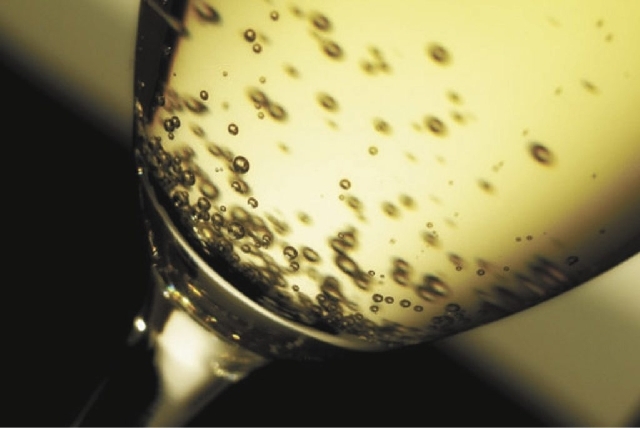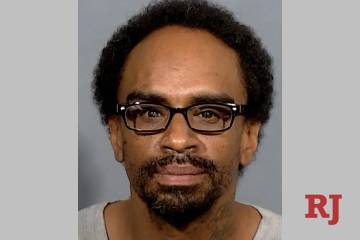Jury to decide if damages merited in champagne, wine infringement case
As the all-important pre-New Year’s sales season approached in December 2002, prominent liquor distributor Larry Ruvo sued to stop Los Angeles area rival Guy Azera from selling three of the priciest champagne labels in Nevada.
The subsequent legal odyssey, including a 2008 ruling by Clark County District Judge Mark Denton that was upheld three years later by the Nevada Supreme Court, affirmed the exclusive territories claimed by Southern Wine & Spirits of America Inc., where Ruvo is senior managing director for Nevada. The rulings covered not only Cristal, Dom Perignon and Veuve Cliquot, but a dozen Bordeaux wine labels brought into the litigation in 2006.
On Wednesday, an eight-person jury began to hear the case’s final phase, which will address what, if anything, Azera’s Chateau Vegas Wine Inc. and Transat Trade Inc. owes Southern Wine for infringing on the exclusivity. Southern Wine attorney E. Leif Reid claimed only $144,000 for lost profits plus interest, but did not specify any punitive damages or legal fees that could run several million dollars.
Although much of the trial, expected to run into mid-June, will focus on Azera’s business dealings, attorneys on both sides devoted major pieces of their opening statements to the merits and drawbacks of the state’s arcane liquor laws. Both paid particular attention to the so-called gray market, products that Azera purchased outside the official distribution channels for resale to retailers.
Reid depicted the exclusivity agreements as the industry’s consumer protection program, especially important for bottles costing several hundred dollars each.
“Most people cannot relate ... to spending so much money on this,” he said, holding up a $500 Cristal bottle in a decorative plastic wrap. “But if they did, they would expect something special.”
Exclusive deals protect against counterfeits from “shady sources,” improper storage or transportation that can destroy the flavor, he said. Ruvo testified that people who bought bad liquor would then demand replacements from the official dealers.
Azera’s attorney R. Duane Frizell emphasized that the gray market — he prefers the term “parallel imports” — is not only legal, but that his client followed all the proper handling procedures.
He depicted Southern Wine, backed by exclusivity deals, as a behemoth that has squeezed competitors and customers alike. In the latter instance, for example, this has meant forcing customers to buy certain liquors to receive something like Cristal.
“We are dealing with a gorilla,” he said. “What does an 800-pound gorilla do? Anything it wants.”
Southern Wine has pressed for damages against Azera’s companies, saying they repeatedly violated the exclusivity rights, starting with the first formal notification written by a Southern Wine attorney in February 2002. Rather than “bullying by Southern Wine,” said Reid, “(Azera ) simply won’t accept the fact that Nevada law won’t allow him to sell whatever he wants whenever he wants.”
However, countered Frizell , Azera dealt regularly with the Nevada Department of Taxation and never received a hint that he was doing anything wrong.
Moreover, Azera did not just follow the claims, not backed up by official documents, that Southern Wine actually held exclusivity, Frizell argued. With a couple of Bordeaux wines, Southern Wine’s claims turned out to be wrong.
“Does any (businessman) just take the other side’s word at face value?” he asked .
Southern Wine has been joined in the case by Maisons Marquest & Domaines Inc., an arm of Cristal maker Louis Roederer.
Contact reporter Tim O’Reiley at
toreiley@reviewjournal.com or 702-387-5290.




























